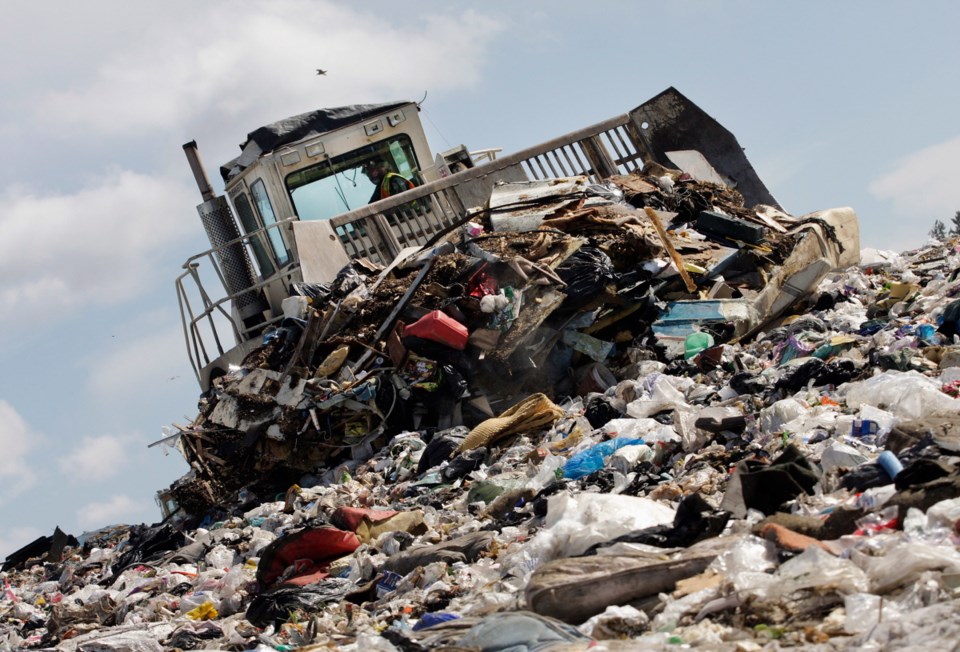Bio-fuel made from cooking-oil waste, bags made from flags and reclaiming art supplies are among seven waste-reducing ideas that will undergo the poking and prodding of a start-up incubator in hopes of developing new green businesses over the next eight months.
Flying under the Project Zero banner, a new-business incubator is running seven Island groups and their ideas through a process designed to have people rethinking the things they toss into the garbage.
“We are hoping this will generate some great buzz for green business on Vancouver Island and showcase what we can do when we think of waste as a resource rather than as something that ends up in a landfill,” said Jen Fraser, Project Zero’s director of development.
Project Zero, a major push from the Synergy Sustainability Institute, is about exploring what’s possible in a circular economy — one that shares more than it owns, supports products that are made and repaired locally, and in which someone’s waste is another’s resource.
The incubator program is for Vancouver Island entrepreneurs in various stages of development who want to turn waste materials into new products.
Fraser said they had 20 applicants for the eight-month program, and chose seven.
“As it is our first time developing and hosting an incubator we wanted to work with a small group. That way there is more personalized time with them and we can perfect the [systems] for future years,” said Fraser.
Over the next eight months, the groups will receive guidance and support to launch their businesses.
“The main thing will be to work on the business plan,” Fraser said. The groups will be taken through their visions, expectations, organizational structure, legal aspects, marketing, financing and human resources by industry leaders and mentors.
The companies come in all shapes and sizes, from those with an idea and a few dreams, to others with ready-to-sell products; some are social enterprises and others are for-profit firms looking to expand.
Jakelina Listes founded a group called Sewlutions, a not-for-profit sewing program for immigrant women, which has been using second-hand textiles to create new products.
Listes said they have developed a product — re-usable bags from flags and banners — that has found a market at craft fairs and farmers’ markets. “We are looking to scale up and maybe find a more suitable organizational model … we’re figuring out where to take the idea next.”
It was the appeal of mentorship and guidance from people with more experience in a social enterprise that sold her on the incubator, Listes said. “Now we hope to develop this into a sustainable product, that could bring some employment opportunity for immigrant women, and be a revenue generator so it can sustain itself.”
Caroline Thibault is hoping the incubator will help take their venture, which is in the concept stage, to the point it can make a dent in the number of single-use containers being used in local restaurants and grocery stores.
Thibault said they will offer a service that provides reusable and returnable cups and take-out containers.
“We’re still discussing the logistics of this,” she said. The idea is so young the venture has not yet settled on a name.
Thibault said their goal over the next eight months is to develop a pilot project to prove the concept can work in Victoria.
The incubator program, funded by Vancity credit union, will wrap up at the Vancouver Island EcoStar Awards in November, where the top entrepreneurs will pitch their ideas to an audience of green-business leaders and local investors.



